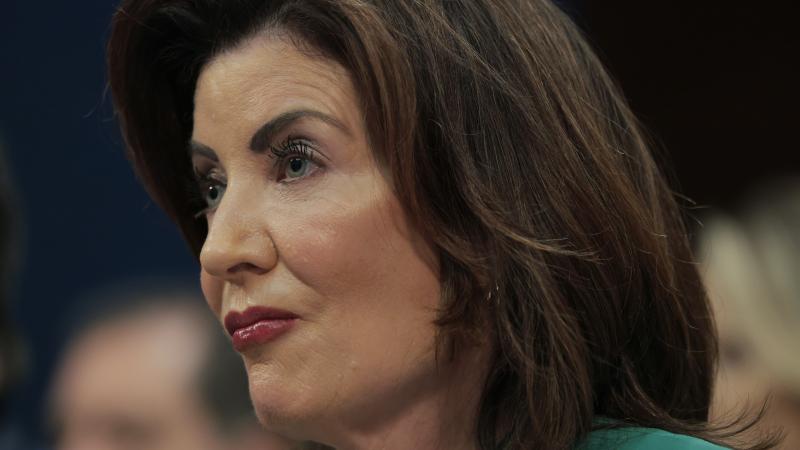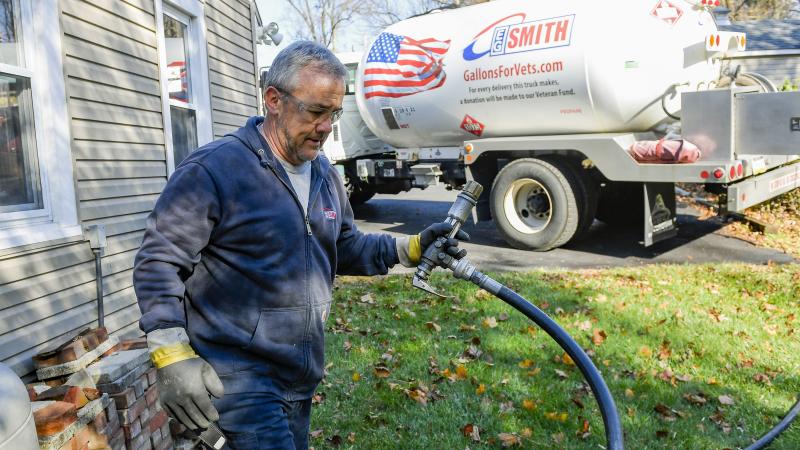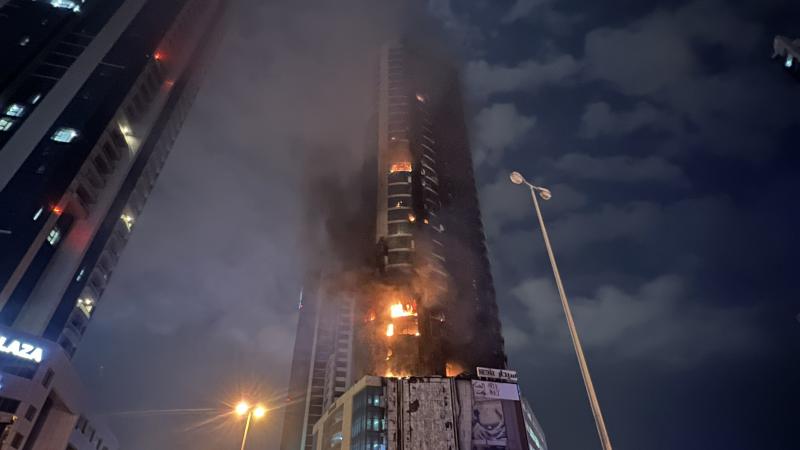Sen. Joe Manchin: Biden’s 'pause' on LNG export permits put the ‘cart before the horse’
Sen. Joe Manchin, D-W.V., chair of the committee, said that the review isn’t the problem. The problem, he said, is that it was done with an executive order from the president without any kind of Congressional or public comment process.
The political storm stemming from President Joe Biden’s decision to pause export permits for liquified natural gas (LNG) continued in a hearing Thursday of the Senate Committee on Energy and Natural Resources.
David Turk, deputy secretary of the U.S. Department of Energy (DOE), testified that federal law gave the department the responsibility to decide whether authorizations for the export of LNG to non-free trade agreement countries are consistent with the public interest.
The Federal Energy Regulatory Commission (FERC) authorizes the construction of LNG import and export facilities, and the Department of Energy approves licenses that are required to export natural gas to countries that lack a free-trade agreement with the U.S. That group includes EU countries, and the pause impacts pending export applications with the DOE.
The pause, Turk explained, was necessary to update the criteria and data used to determine if the export licenses are in the public interest, which includes a review of their impact on climate change.
Sen. Joe Manchin, D-W.V., chair of the committee, said that the review isn’t the problem. The problem, he said, is that it was done with an executive order from the president without any kind of Congressional or public comment process.
“They could have said, ‘we're going to have hearings and listen to the concerns we have about maybe going into a pause, if needed.’ That's where they basically jumped before they basically looked where they were jumping. And we're trying to get them to retract that,” Manchin said.
Sen. Lisa Murkowski, R-Alaska, said the abruptness of Biden’s executive order was “stunning.” “There was no federal register notice. Just all of a sudden one Friday — it's always on a Friday — Friday afternoon, January 26, we hear that there is this pause,” Murkowski said.
Turk wasn’t able to give any definitive timeline for how long their review would take before permitting could resume.
“We're going to do this as quickly as we possibly can do it. We're going to do it right, though. And we're going to do it in a very rigorous manner given that these trends are going on,” Turk said, referring to the future increases in LNG exports.
Biden takes advice from Tik Tok activist
One of the key concerns, Turk said, is the “methane leakage” that occurs along the LNG export process, which contributes to global warming. He said that the U.S. net zero emissions goals require that LNG exports around the world will need to be reduced by 75%.
“I'm incredibly proud to be part of the administration where we have a net zero goal by 2050. Countries around the world are setting net-zero goals,” Turk said.
Sen. John Barrasso, R-Wyo., ranking member of the committee, quoted an editorial in The Washington Post in saying that the pause was nothing more than “political theater.”
“White House made the decision to stop approving LNG exports based on the demands of a 25-year-old so-called influencer on Tik Tok — the President of the United States relying on some young man's Tik Tok account to set the policy affecting our closest allies around the world,” Barrasso said.
Barrasso was referring to statements from Alex Haraus, a prominent climate activist on Tik Tok. Haraus posts videos claiming that LNG has a larger carbon footprint than coal. In November, Fox News reported, Haraus began making videos arguing that the permitting of more LNG terminals would worsen global warming. Haraus told Fox that he met with White House climate advisors alongside other environmental activists from the Gulf Coast in the months before Biden paused LNG export permits.
Haurus claims to have an an environmental studies degree from DePaul University, and describes himself on his website as "an Impact-focused creator outfitting others to take action for our planet."
Russian supplies
Committee Republicans and Manchin argued the pause will disrupt long-term supplies of natural gas to U.S. allies, especially in Europe, and without a reliable supply from America, those nations will turn to adversarial countries, such as Russia and Iran.
When Barrasso asked Turk if U.S. interests were better served if its allies are buying LNG from the U.S. rather than Russia or Iran, Turk admitted it was better they get it from the U.S.
Turk said that the last time the DOE updated its macroeconomic analysis, the U.S. export capacity was 4 billion cubic feet of LNG per day. Today, it’s more than 14 billion cubic feet per day, making the U.S. the largest exporter of natural gas in the world. The total capacity of all projects operating or authorized, Turk said, is 48 billion cubic feet per day.
Turk also claimed that Europe’s demand will fall 20%, Japan’s demand had peaked, and South Korea’s will peak in 2031. The volumes of export and models that show decreasing demand abroad are why, Turk said, the pause was needed. “Frankly, I think it'd be irresponsible if we weren't taking a step back and doing this kind of rigorous analysis,” Turk said.
Manchin disputed Turk’s claims. The demand in Europe, he said, had fallen because of the war in Ukraine and the high prices that followed when natural gas supplies from Russia were disrupted.
“I don't think it's accurate saying that you're expecting their demand to be low. If they have stable pricing that they can count on and rely on, not Russia, not foreign adversaries that we can't count on, then you will see your comeback,” Manchin said.
Dr. James Watson, secretary general of Eurogas, testified that European countries are worried about their supply of natural gas. Europe, he said, is still buying 1.766 cubic feet of gas from Russia, which is not a reliable source due to the invasion of Ukraine.
“No country in Europe has welcomed this decision,” Watson said. The pause could, he said, force Europe to do business with Russia.
Prices and investments
Turk said the analysis that will be done during the pause will also look at the impact of natural gas prices that the increased volume of exports will have.
“When you're talking about those percentages in those volumes, that should be a blinking red light for all of us to take a step back. Let's do the analysis. Let's focus on what the impacts are for farmers, for consumers, for industry,” Turk said.
Charlie Riedl, executive director of the Center for LNG, testified that the U.S. experience with exports shows that prices are not going to be negatively affected. He said in 2019, there were three operational export terminals operating. Today, there are seven operating, and domestic production of natural gas has more than doubled in the last 20 years. Since 2005, he said, natural gas prices have fallen by 71% for domestic sources.
Riedl also said that LNG projects require 10 years and $20 billion in capital investment to bring to fruition. “Projects of this magnitude require extremely careful planning and investing. And any fluctuations in that policy or the regulatory frameworks will slow innovation and deter investments, which can potentially destabilize the United States leadership in the global energy market,” Riedl added.
Manchin ended the hearing by reiterating his position that the review should come before the pause.
“Hopefully we can take this message back and maybe change for the better, if you will. We’ll put a real pause to the pause. It’s what I think we should do,” Manchin said.
















